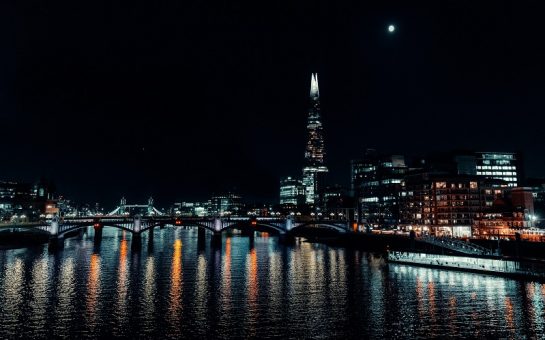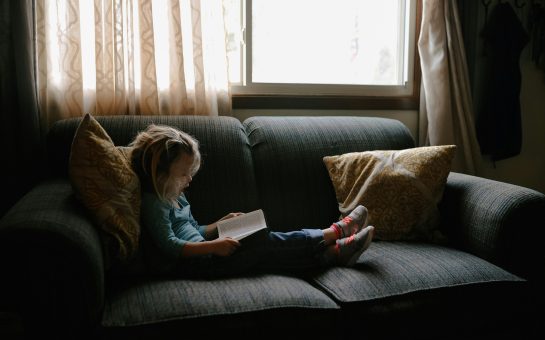Based on the opening scenes, you could be forgiven for thinking The Drifters is a highly clichéd French film.
All the self conscious quirkiness and whimsy suggests this is the case, but the reality is more layered and nuanced.
Set in a post Brexit Britain, it is a love story between two immigrants, who meet at an English language class.
Koffee (Jonathan Ajayi), a West African man who has seen and been through too much, is now resolved to secure a better future for himself.
He falls in love with the carefree Fanny (Lucie Bourdeu), a young French woman.
Ajayi’s performance is moving.
He portrays a hardened but sensitive man, struggling to remain stoic even as his life is unraveling.
His career is on the up and up, having appeared in Wonder Woman 1984 and the TV series Noughts & Crosses.
Fanny, played by Lucie Bourdeu, is in some ways an unlikeable character.
She is playful and childlike with Koffee, often in her own dreamy world where she is selfishly oblivious to his suffering.
She isn’t fully aware of his predicament – that he has become embroiled in organised crime in an effort to be given a fraudulent passport.
Pursued by the villainous Doog, he knows it is only a matter of time before his crimes catch up with him.
Koffee says: “My life is a matter of life and death. Your life is a matter of pleasure or pain.”
The flirtatious banter between them gets a little tired.
At times it becomes convoluted and they seem unable to say anything in a direct and upfront way.
The couple encounter a local boatman who initially seems bigoted but becomes an unexpected ally.
Played by Jonjo O’Neill, he is much like Koffee, in that he is reserved but conveys hidden emotional depth.
As someone operating in the grey areas of legality himself, he has no qualms with harbouring a criminal.
There are film references galore, especially to Pulp Fiction.
Fanny dons an Uma Thurman style wig and dances the twist, à la Quentin Tarantino’s famous diner scene.
Indeed she has dreams of meeting Tarantino in the US and embarking on an acting career.
There are also scenes where she addresses the camera.
This is an offbeat characteristic of French New Wave, but my reference points for ‘breaking the fourth wall’ as it’s known, were Ferris Bueller’s Day Off and sitcoms like Malcolm in the Middle.
It is director Benjamin Bond’s first feature film, having previously worked as a producer and screenwriter on Skins and Killing Bono.
He spent time working in Senegal, where he discovered that droves of young Africans were leaving the continent on foot, in search of a better life.
He said: “What if one of these adventurers had made it all the way to the UK?
“How would their life look and what if we could tell that story without them having any psychological baggage, they were just getting on with it.
“Would that be refreshing?
“And let’s say they fell in love with someone who was free to go where they wanted.
“That was the germ of The Drifters.”
The film is about free movement, something which is particularly pertinent in the era of Brexit.
To gain a passport Koffee must commit a violent crime whereas Fanny is free to travel as she wishes with no conditions.
The pair wish to go to the US but just how far they will make it is the film’s central question.
All the hallmarks of a pretentious continental production are present in The Drifters.
The colours are bright and sunny, the actors are constantly smoking cigarettes and the shots are framed in the style of a Wes Anderson picture.
Crucially though, it is set in the UK, throwing everything off kilter.




